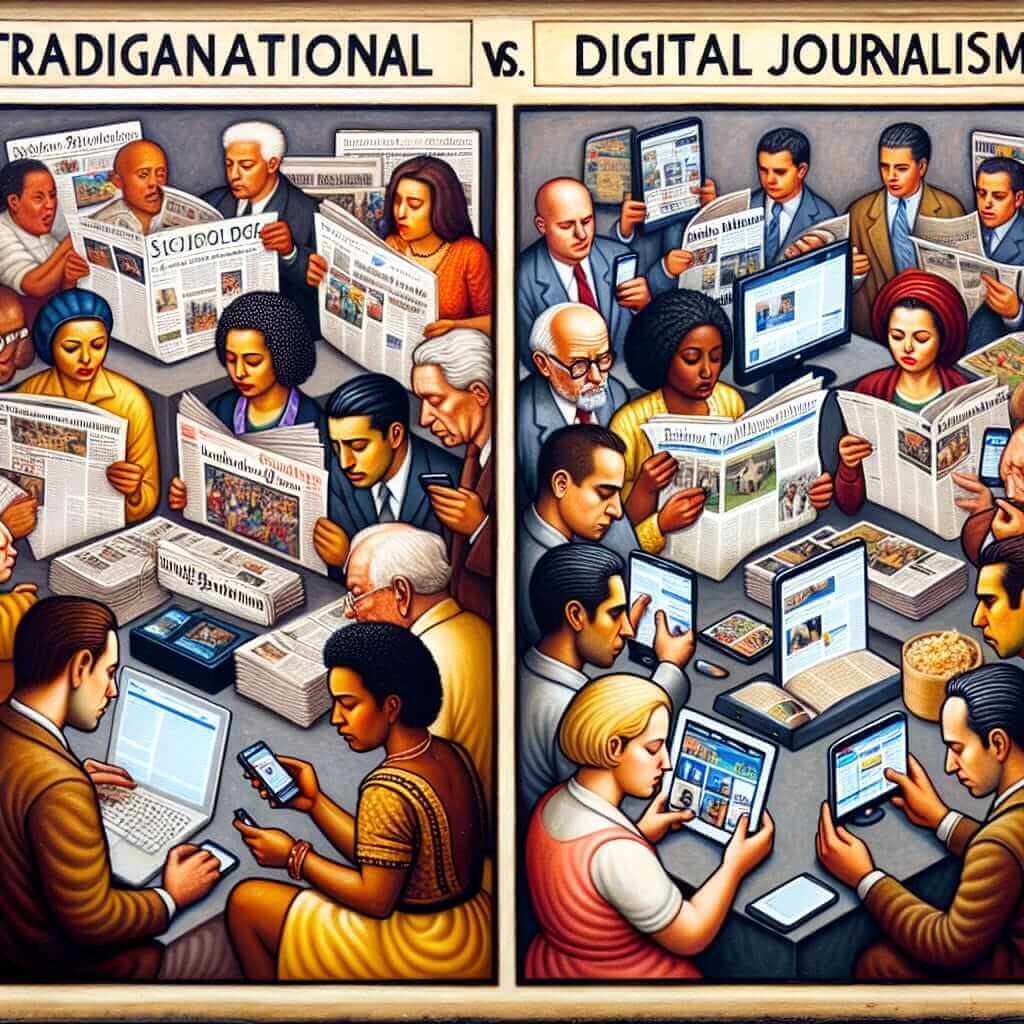The intertwining of digital media and traditional journalism is a hot topic in the IELTS Writing exam. Understanding how these two forces interact is crucial for crafting a compelling argument in Task 2. This article provides a comprehensive guide, including sample questions, a model essay, and key vocabulary to help you achieve a band 8 score.
Sample IELTS Writing Task 2 Questions
Here are some potential essay questions you might encounter related to the influence of digital media on traditional journalism:
- To what extent do you agree or disagree that digital media has had a negative impact on traditional journalism?
- Discuss the advantages and disadvantages of digital media for the future of journalism.
- Some people argue that traditional journalism is no longer necessary in the digital age. To what extent do you agree or disagree?
Model Essay: Digital Media and the Evolution of Journalism
Question: Discuss the advantages and disadvantages of digital media for the future of journalism.
Essay:
The dawn of the digital age has irrevocably transformed the landscape of journalism, presenting both unprecedented opportunities and formidable challenges. While traditional print media grapples with declining readership, digital platforms have emerged as powerful tools for news dissemination and audience engagement. This essay will delve into the multifaceted impact of digital media on the future of journalism, examining both its merits and drawbacks.
On the one hand, digital media has democratized access to information and empowered citizen journalists. Online platforms have shattered the barriers of entry for aspiring reporters, enabling individuals with diverse perspectives to share their stories and challenge established narratives. This has fostered a more inclusive and participatory media ecosystem, where alternative voices can be heard. Moreover, the immediacy and interactivity of digital platforms have revolutionized news consumption. Real-time updates, live-streaming, and social media engagement have made news a dynamic and interactive experience, allowing audiences to actively participate in shaping narratives.
However, this digital revolution has also unleashed a torrent of challenges. The proliferation of unverified information and the rise of “fake news” pose a significant threat to journalistic integrity. The speed at which information spreads online makes it difficult to distinguish fact from fiction, potentially eroding public trust in news sources. Additionally, the economic model of digital journalism remains precarious. The decline in print advertising revenue has forced many traditional news outlets to embrace online subscriptions or rely on precarious funding models, threatening the financial viability of investigative journalism and in-depth reporting.

In conclusion, digital media presents a double-edged sword for the future of journalism. While it offers unparalleled opportunities for citizen participation and global reach, it also presents challenges related to misinformation and economic sustainability. The key lies in harnessing the transformative power of digital tools while upholding the core principles of journalistic ethics and integrity. This will require a concerted effort from journalists, tech companies, and the public alike to ensure a future where credible and trustworthy journalism can thrive in the digital age. (Word count: 296)
Notes on Writing Your Essay
- Structure: Follow a clear structure with an introduction, body paragraphs (advantages and disadvantages), and a conclusion.
- Vocabulary: Use a range of vocabulary related to media and technology. Avoid repetition by using synonyms.
- Grammar: Ensure grammatical accuracy, especially with complex sentences and linking words.
- Examples: Provide relevant examples to support your points.
- Critical Thinking: Present a balanced argument by acknowledging both the positive and negative aspects of digital media.
Key Vocabulary
- Dissemination (noun) /dɪˌsemɪˈneɪʃən/: The act of spreading information widely.
- Citizen journalist (noun) /ˈsɪtɪzən ˈdʒɜːrnəlɪst/: An ordinary person who reports news, often using social media.
- Immediacy (noun) /ɪˈmiːdiəsi/: The quality of being immediate or instant.
- Proliferation (noun) /prəˌlɪfəˈreɪʃən/: Rapid increase in the number or amount of something.
- Unverified (adjective) /ʌnˈverɪfaɪd/: Not officially confirmed or proven to be true.
- Precarious (adjective) /prɪˈkɛəriəs/: Not securely held or in position; dangerously likely to fall or collapse.
Conclusion
Mastering the topic of digital media’s influence on traditional journalism will equip you with valuable insights for your IELTS Writing Task 2. By understanding the complexities, developing strong arguments, and using appropriate vocabulary, you can confidently tackle any question on this subject. Remember to practice regularly and analyze model essays to refine your writing skills further.